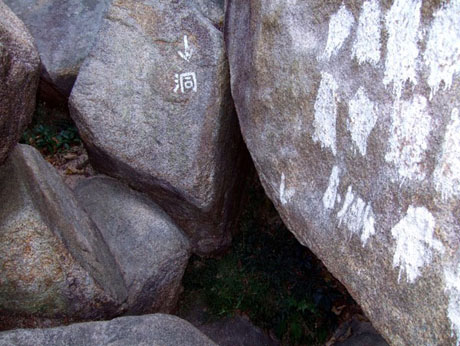Each year, Fairchild TV (Canada's Chinese network) invites TVB stars to come to Canada to perform at its TVB Fans Party. This year, the guests were Ruco Chan, Linda Chung, Kenneth Ma and Sonija Kwok. I was at their autograph session in Toronto.
Thursday, May 30, 2013
Wednesday, May 29, 2013
Official Poster for Awfully Lawful

Comment: Fittingly wacky poster for what should be a funny series. Eight main characters seem to be a lot; let's see if it can be handled without too much of a mess. One thing for sure, not a legal drama for aspiring lawyers.
Overview - Awfully Lawful
Awfully Lawful Promo Clips
Awfully Lawful Promo Clips
Overview - Awfully Lawful, Official Poster, Trailer @ FILMART
Promo #1
Promo #2
Promo #3
Extended Trailer:
Promo #1
Promo #2
Promo #3
Extended Trailer:
Saturday, May 25, 2013
A Personal Message
亦因愛妳令妳不安 才離開不再講
As my love has made you uncomfortable, I will leave without saying anymore.
To K.A.
盡管我在你心裡佔據了什麼地位,我不會忘記曾經真摯的友情。
今天只有隔空祝願一句:生日快樂!
Regardless of my place in your heart, I will never forget the true friendship that once existed.
I wholeheartedly wish you a "Happy Birthday"
Friday, May 24, 2013
Overview - Awfully Lawful

Raymond Cho and Pal Sinn are partners of a solicitor firm. They invite Roger Kwok and Johnson Lee to join the firm as well. Despite their different personalities, the four men share a close bond. They are well-known within the legal circle as "The Big Four Mature Men". Their creative tactics to win court cases has won over many female clients. Unfortunately, someone has swindled money from the firm. To save the firm from financial distress, four female lawyers are brought in. They include Roger's rival (Sharon Chan), Johnson's wealthy wife (Selena Li), a housewife (Joyce Tang) and a barrister who gets entangled with Pal and Johnson (Grace Wong). The eight people's working and private relationships get more and more messy, until they finally realize that there is someone behind all the happenings at the law firm...
Comment: Sounds like it'll be a nice comedy. I always look forward to legal dramas!
Watch Promo Clips here


Character Map:
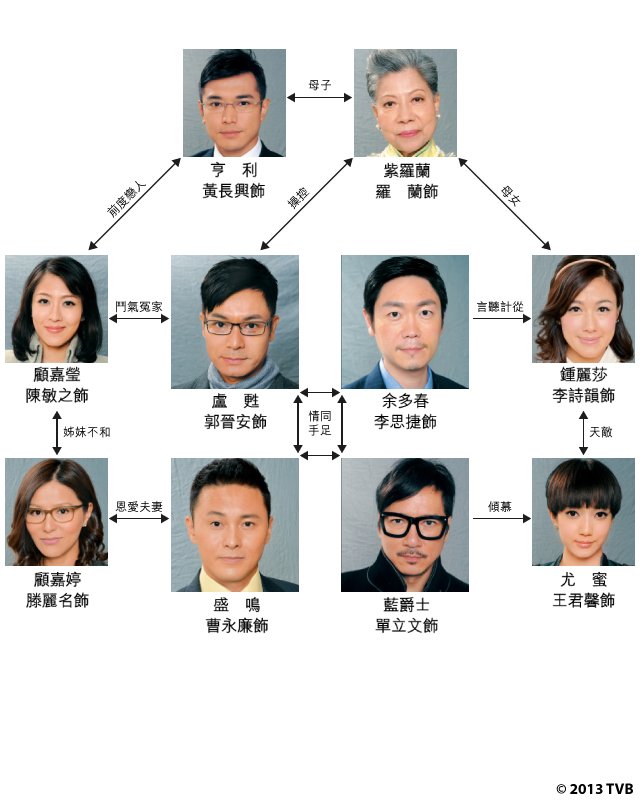
Thursday, May 23, 2013
Wednesday, May 22, 2013
Historical Context - Cheung Po Tsai
In Slow Boat Home, Raymond Wong’s character is nicknamed “Cheung Po Tsai”. Cheung Po Tsai (張保仔) was actually a famous pirate during the Qing Dynasty.
As a 15 year old, Cheung Po Tsai accompanied his fisherman father out to sea and was captured by a pirate named Cheng I (鄭一). Thus began his pirate career as a member of the Red Flag Fleet. Allegedly, Cheng I was a homosexual and fell in love with the handsome teen. His wife, known as “Cheng I So” (鄭一嫂), also became involved with Cheung Po Tsai.
When Cheng I died in a typhoon, Cheng I So remarried to Cheung Po Tsai and together, they secured power as the new leaders of the Red Flag Fleet. Their fleet, consisting of 30,000-40,000 men and 600 ships, dominated the South China Sea. As a pirate, Cheung Po Tsai had a code of honour: he robbed government and merchant ships, but never victimized fishermen. He also strictly prohibited his men from disturbing the citizens and stealing from the poor.
The Qing government waged many wars against the pirates. The most large-scale battle was at Chek Lap Kok (赤鱲角海戰), in which the Qing and Portuguese navies jointly fought against Cheung Po Tsai. Each side had 300 ships staffed by 30,000 men and heavy artillery. Cheung Po Tsai split his fleet into six squadrons. His plan was for each squadron to surround a single Portuguese ship, then board and overpower the enemy in a physical fight. But the Portuguese were able to fend off the approaching pirates with concentrated fire. The turning point came when the Portuguese bought down a pirate ship carrying a deity statute. Seeing the “protector” statute fall into the ocean destroyed the morale of the pirates and many of them decided to flee.
The strength of the Red Flag Fleet was severely diminished after that battle. Eventually, Cheung Po Tsai surrendered to the Qing government. In return, he was given the post of colonel and tasked with helping the government fight against other pirates, which he spent the rest of his life doing.
Cheung Po Tsai is rumoured to have hid his treasures in many locations. The most famous location is the “Cheung Po Tsai Cave” (張保仔洞) on Cheung Chau. However, the cave is extremely small and narrow, causing some people to be suspicious of the claim that he buried treasures there. As of yet, no treasures have been found. Some believe the cave only served as his hiding place to escape from the Qing or as a storage place for explosives. Nonetheless, the cave is a popular tourist attraction.
Monday, May 20, 2013
Selena Li Beauty Tips
Found some videos of Selena Li showing how she achieved her schoolgirl look in Slow Boat Home. Looks like she didn't to hire a make-up artist!
Step 1 - Applying Make-up
Step 2 - Ponytail Extension
The Result:

Selena founded her own beauty school, called Technique. She has more beauty tips on her YouTube channel: SelenaBeautyTips

Step 1 - Applying Make-up
Step 2 - Ponytail Extension
The Result:

Selena founded her own beauty school, called Technique. She has more beauty tips on her YouTube channel: SelenaBeautyTips

Saturday, May 18, 2013
Cheung Chau Bun Festival

The Cheung Chau Bun Festival is an annual event held in Cheung Chau each May. It has received designation as one of four important cultural events of
The centuries-old tradition originated as a Taoist ceremony in which the people prayed to the gods, in hopes of preserving peace and fortune in the area. According to legend, Cheung Chau was once hit hard by a plague. Some residents paraded the statue of Pak Tai (北帝), the northern god, around the island. Sure enough, the plague disappeared soon after. As a tribute to Pak Tai, a celebration is held in his honour each year. Despite the religious origins, the Bun Festival has now evolved into a grand celebration of Chinese culture that attracts tourists and non-Taoists alike. The festival lasts for 7 days with carnival games, parades and performances.
The official start of the Bun Festival is marked with a ceremony to “invite” the deities to join in the celebrations. A procession led by a Buddhist priest visits each temple in Cheung Chau to bring the deities to the Pak Tai Temple, where the main celebrations will occur. For the next three days, the entire island goes vegetarian. Even the local McDonalds observes this tradition by offering mushrooms in place of meat burgers. The two highlights of the festival are the Floating Colours Parade and the Bun Snatching Competition.
The official start of the Bun Festival is marked with a ceremony to “invite” the deities to join in the celebrations. A procession led by a Buddhist priest visits each temple in Cheung Chau to bring the deities to the Pak Tai Temple, where the main celebrations will occur. For the next three days, the entire island goes vegetarian. Even the local McDonalds observes this tradition by offering mushrooms in place of meat burgers. The two highlights of the festival are the Floating Colours Parade and the Bun Snatching Competition.
The Floating Colours Parade involves children dressed as historical figures and modern politicians. They ride atop a pole, which gives the appearance that they are floating in the air. The parade also includes a variety of other floats, musicians and lion dancers. Red sedan chairs will carry the deities in the parade to scare off evil spirits.


The Bun Snatching Competition takes place at midnight on the 8th day of the fourth lunar month (typically the last day of the festival). Traditionally, people would scramble up the bun towers, made from bamboo, to grab buns stamped with the words “平安” (peace). The higher the bun, the greater the blessings it brings. The competition was cancelled starting in 1979, after one of the towers collapsed, injuring many people.
In 2005, the event was brought back with safety modifications. Only a handful of participants are allowed to climb the tower, now made of steel and covered with plastic buns. There are 9000 buns on the tower and participants try to collect as many as they could within three minutes.
The real buns are handed out to people after the race. An estimated 25,000 buns are handed out each year. In the afternoon, another ceremony is performed to accompany the gods back to their temples. After this, the Bun Festival is officially concluded.


Read about notable Cheung Chau personality - Cheung Po Tsai
Wednesday, May 15, 2013
A Change of Heart Promo Clips
Overview - A Change of Heart, Official Poster, Trailer @ FILMART
Promo #1
Promo #2
Promo #3
Promo #4
Promo #1
Promo #2
Promo #3
Promo #4
Tuesday, May 14, 2013
Symbolism in Bullet Brain
A netizen pointed out how the characters in Bullet Brain can be used as symbolism for international relations. This was probably not TVB’s intention, but at least it’s something interesting from a boring series. (Read Bullet Brain Review)
Disclaimer: This is not meant to be a political statement in any way.
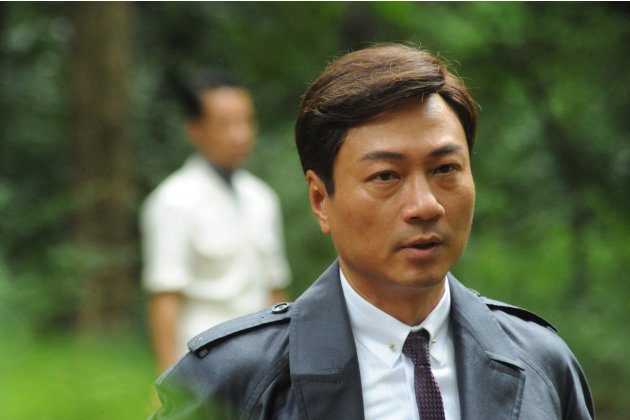


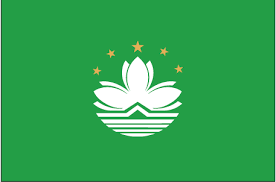


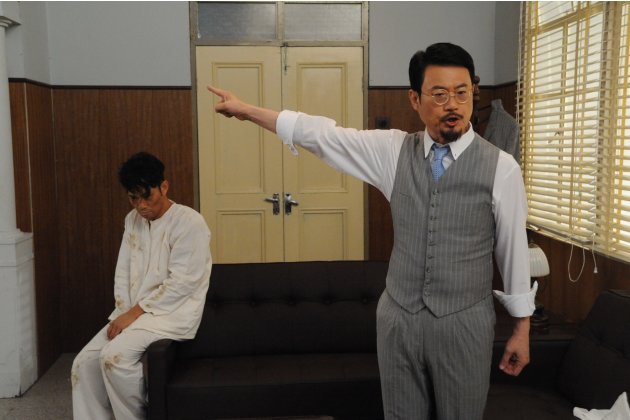

Disclaimer: This is not meant to be a political statement in any way.
Dai Hei/Columbo (Wayne Lai) = Hong Kong
Initially a simple-minded person, he becomes intelligent after an accident. Hong Kong used to be just a small fishing town, but became prosperous as result of WWII.


Ping On (Pierre Ngo) = Macau
After an accident, he switches brain cells with Columbo and becomes the new Columbo. After the transfer of sovereignty of Macau, it replaced Hong Kong’s flourishing development.

Mui Mui (Natalie Tong) = China
She gave up on Dai Hei (cession of Hong Kong) for her own benefit (Opium Wars). Once he becomes the brilliant Columbo, she wants him back (handover of Hong Kong).


Szeto Nam (Natalie Tong) = Tibet
Always causing into trouble; the reason for Mui Mui’s (China) craziness.




Eva (Sire Ma) = Britain
She was at Columbo’s (Hong Kong) side through bad times. She negotiated with Mui Mui (China) regarding his future.
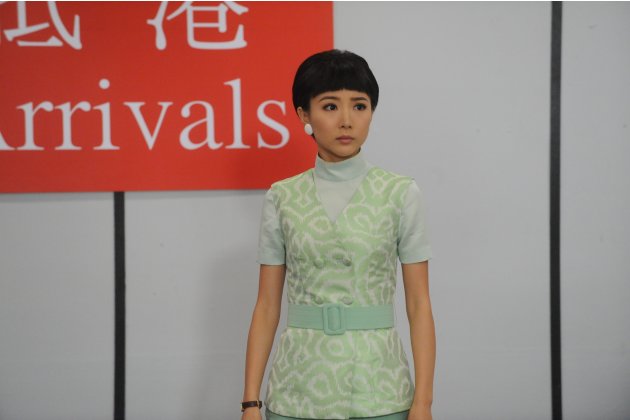
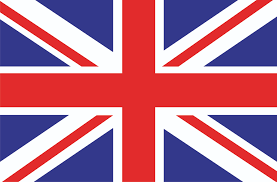

Fei Lung (Edwin Siu) = Singapore
Good, disciplined, youthful. He does well in everything, but is still not favoured by Eva (Britain).
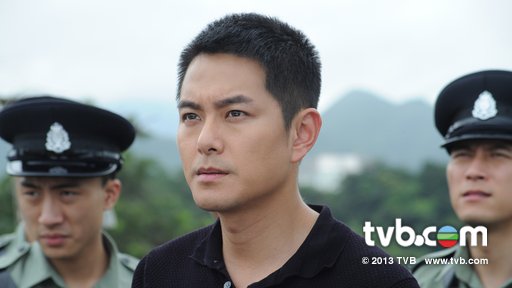



Louis Kim (Joe Junior) = USA
As Secretary for Security, he has the power to make decisions that affect everyone.
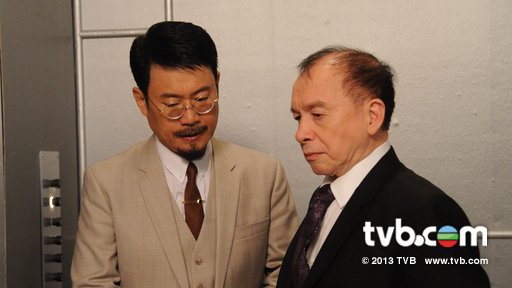



Edward Scott (Brian Burrell) = Philippines
Corrupt, hated by everyone




Tong Kai Ming (Geoffrey Wong) = Taiwan
He was once with Mui Mui (China), but was later murdered by her, reflective of how the Kuomintang was defeated by the Communist Party.

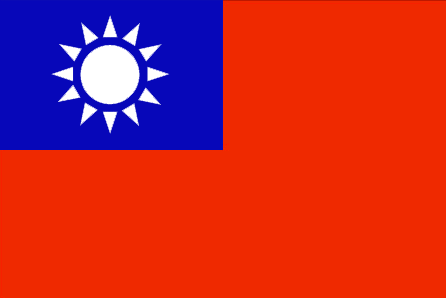


Choi Tin (Lau Dan) = Malaysia
Extreme corruption; used to have poor relations with Edwin (Singapore), but now live together.




Joanna Rose (Corinna Chamberlain) = Portugal
Took care of Ping On (Macau), but left after his accident (Macau handover) and never interfered anymore.
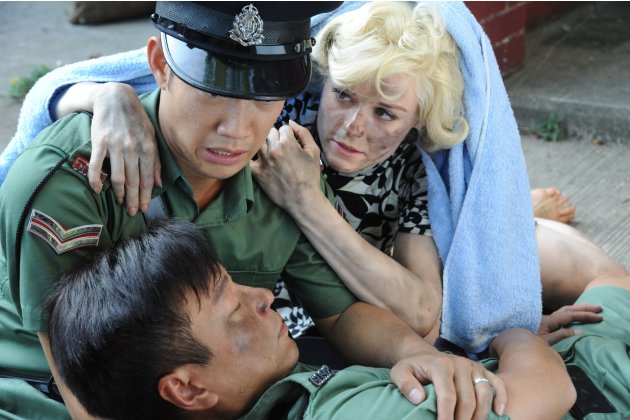



Hospital Director Lee (Tang Ying Man) = United Nations
Examines Columbo along with other experts, showing his concern for Columbo’s (Hong Kong) condition. Has influential power that even Louis Kim (USA) listens to his advice.


Subscribe to:
Posts (Atom)













